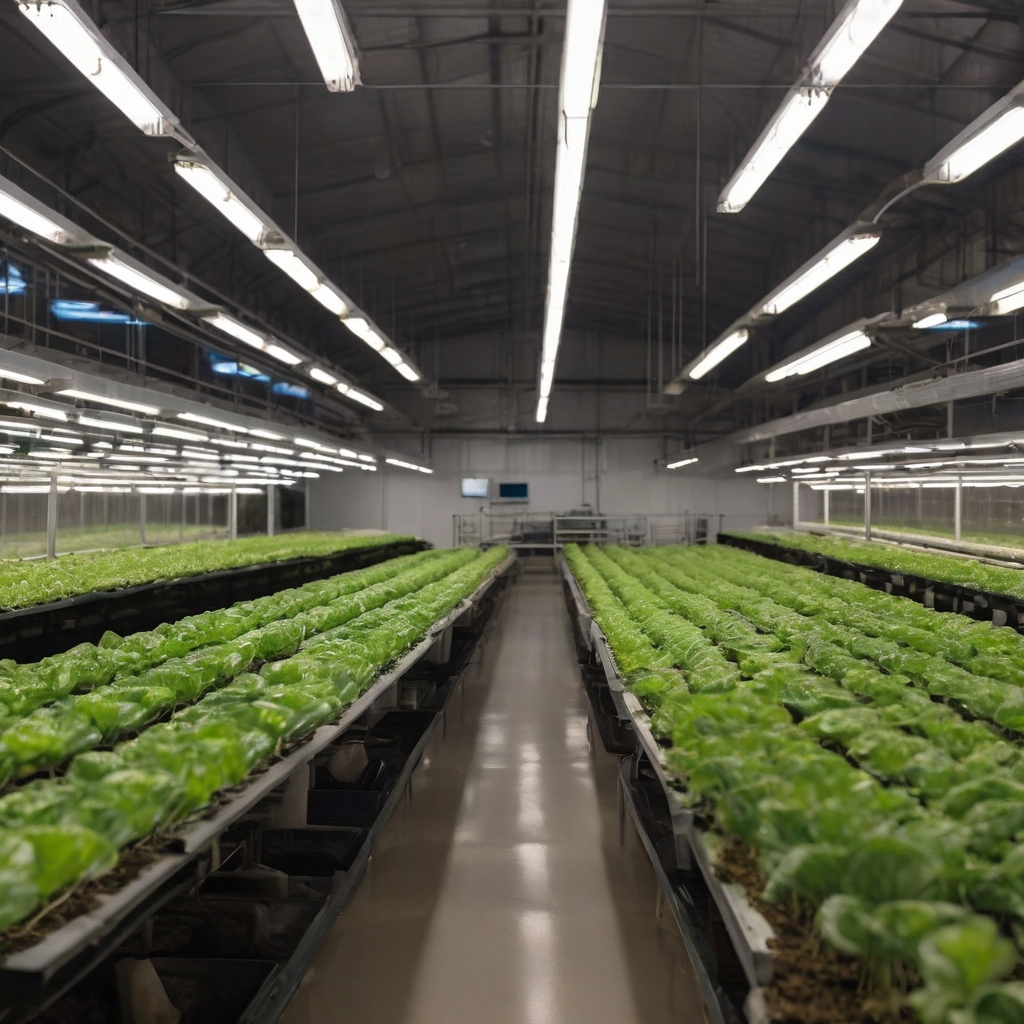In a bid to revolutionize indoor farming, a pioneering project led by LettUs Grow in Bristol, UK, is set to harness the power of spectral imaging and artificial intelligence (AI).
The Advanced Crop Dynamic Control (ACDC) project, backed by £757,151 in funding from the UK’s Novel Low Emission Food Production Systems competition, aims to develop highly energy-efficient and sustainable indoor farming systems through cutting-edge image-based analysis, AI, and control software.
UK industry collaborates for greener agriculture advances
The ACDC project is a collaborative effort, bringing together industry leaders including LettUs Grow, Fotenix, Rothamsted Research, CHAP, and Vertically Urban. Together, they aim to drive the development of what is now known as Total Controlled Environment Agriculture (TCEA). At the heart of TCEA lies the utilization of vertical farming with LED lighting in specially designed containers, representing a pivotal advancement in the agricultural sector.
Innovative technology to drive efficiency
Central to the ACDC project is the integration of a cutting-edge spectral imaging system alongside AI-based plant screening technology developed by Fotenix. This innovative technology will enable the measurement of crop physiological status, initially focusing on growing spinach in a container system.
The data gathered will inform critical parameters such as illumination intensity, composition, and energy management, with a specific emphasis on the integration of renewable energy sources.
Promoting sustainable farming practices
By prioritizing plant health through advanced responsive control methodologies, the ACDC project aims to develop more environmentally friendly production recipes. In a world facing significant energy and food security challenges, this project represents a vital step towards creating a more sustainable and efficient agricultural system.
Fotenix CEO, Charles Veys, highlighted the project’s potential to fast-track collaboration among key suppliers, leveraging their technology for the benefit of the agricultural sector. He pointed out that while Fotenix’s cameras have traditionally been used for pest and disease detection, they can now be employed to monitor recipe evolution in farming practices.
Dr. Phoebe Sutton, Plant Scientist at Vertically Urban, expressed excitement about how the project could enhance energy efficiency and crop yield. She emphasized the synergy between their Tunable luminaires and Ostara software platform, which could result in significant advancements.
Adam Waterman, Chief Technical Officer of Ostara, praised the project for connecting AI to farming systems through the Ostara platform. He highlighted the potential for dynamic adjustments to be made in response to plant stress, ultimately aligning plant health with energy usage.
Tackling inefficiencies in Total Controlled Environment Agriculture (TCEA)
The core objective of the ACDC project is to address the inherent inefficiencies in TCEA. Energy consumption is a major operational cost in indoor farming, encompassing lighting, irrigation, and nutrient supply. By automating manual operations and dynamically adjusting the growth environment, the project aims to not only enhance energy efficiency but also improve food safety, consistency, quality, and shelf-life.
CHAP’s Innovation Network Lead, Dr. Harry Langford, underscored the significance of systems-level integration of novel technologies in the context of TCEA. He emphasized the project’s potential to deliver turn-key solutions with global market appeal.
CHAP will also conduct demonstration trials within their Vertical Farming Development Centre, fostering knowledge exchange and engagement with the sector regarding operational efficiencies and the pursuit of Net Zero emissions.





